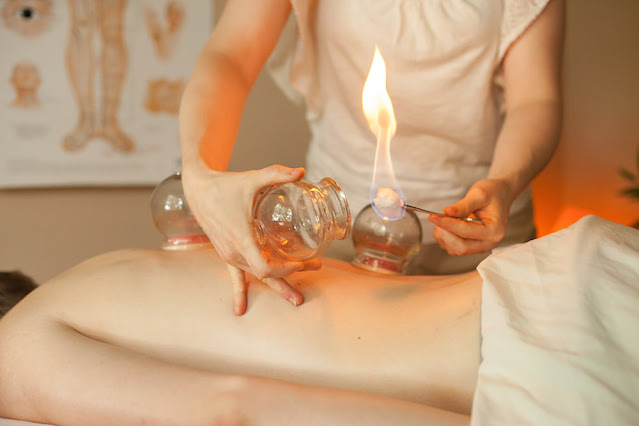HOW TO TAKE CARE OF DRY SKIN?
Dry skin can be due to
genetic or environmental factors. Since this condition decreases the
effectiveness of your skin barrier, its lack of treatment can lead to a rapid
deterioration in the health of your epidermis.
There is a
difference between dehydrated skins: dry skin is a condition, and dehydrated
skin is simply a passing condition that can be addressed quickly. Dry skin
requires specific long-term treatment, while dehydrated skin requires
appropriate care to relieve the skin at the time.
It is important to
moisturize your skin in its entirety without neglecting that of your body or
your lips. Regular hydration is the key to a good skincare routine for dry
skin. If you are affected by dry skin, remember to protect yourself from the
sun and avoid harsh weather conditions as much as possible.
The difference between dry skin and dehydrated skin
Dry skin is a type of
skin, like oily or combination skin. It requires medical body treatment services. It
is mainly due to genetic factors. While dehydrated skin lacks water, dry skin
lacks lipids. In addition, the dysfunction of the lipid barrier of dry skin
prevents it from retaining water effectively. The cutaneous barrier of dry skin
being much less effective than average, it is less well protected against
external aggressions and allows pathogens to penetrate more easily.
Dehydration is a state
in which skin can be found in a specific and localized way. It can come from
climatic factors or lifestyle, including an unbalanced diet. It can affect all
skin types. Dehydration causes temporary unpleasant sensations, the relief of
which is much faster than that of dry skin.
To know for sure if
you have dry or dehydrated skin, consult your dermatologist. The latter will be able to formulate a
precise diagnosis and tell you what to do to remedy your condition as quickly
as possible.
How to recognize dry skin?
High dryness promotes
feelings of redness, itchiness, and tightness in the skin. In addition, dry skin is rough: it lacks
softness and suppleness.
The drier the skin,
the more it tends to show irregularities, to be chapped and to crack easily.
The expert eye of a doctor identifies xerosis (dry skin) in the presence of:
· Dull in appearance
· Cracks
· Desquamation
· A loss of elasticity
· Of inflammation
What causes dry skin?
The dryness of the
skin is due to a lack of lipids in the hydrolipidic film, which comes from
a malfunction of the sebaceous glands responsible for sebum
secretion (a fatty substance essential for the skin barrier). This sebum
deficit then promotes water loss. Once the lipid barrier of your skin is
damaged, the problems accumulate quickly: many substances essential to the good
health and protection of your skin indeed evaporate more easily.
In the case of
dehydrated skin, the dryness comes from environmental or lifestyle factors (it
is not of genetic origin).
Quickly adopting the
right gestures to relieve the dryness of dry skin, like that of dehydrated
skin, helps to avoid its progressive deterioration over the years.
Skin dryness can be
due to pathologies such as contact eczema, psoriasis or hypothyroidism. In the
case of a pathological cause, only a dermatologist can give you the
precise cause and indicate the appropriate treatment. Skin dryness can also be
due to heredity.
Here are the factors that can promote dehydration of the
skin:
· Harsh weather conditions such as extreme
temperatures and wind;
· Aggressive cosmetic products;
· Age;
· The limestone present in large quantities in
tap water;
· Unprotected exposure to the sun;
· Unhealthy lifestyle;
· The consumption of medications, such as those fighting against acne.
All of these can also
aggravate the dryness of dry (hereditary) skin.
Hydration is the key to taking care of dry skin.
To relieve and treat
dry skin, regular hydration is key. You will discover in detail below the routine adapted to dry
skin. However, more is needed to select the right products. It's also about
knowing when and how to apply them to maximize your skin's hydration. Ideally,
apply your moisturizer to skin that is already slightly damp.
By not completely
drying your face after rinsing off the cleanser, you allow your skin to absorb
the active ingredients of your moisturizer more effectively. Indeed, the
presence of moisture on your skin promotes its absorption.
It's also about doing
what it takes to have good hydration in your body. This requires both a diet
rich in antioxidants and sufficient daily water consumption.
If, like many, you
have no precise idea of your daily water consumption; we suggest that you,
for a day, take note of all the volumes of water swallowed. Know that most
sedentary people need to drink 1 to 1.5L of water daily to have optimal
hydration. This measurement will allow you to adjust your daily water
consumption.
The more beneficial
habits you implement for your skin's hydration, the faster the results will be
felt.
For more information
and also for complete dry skin treatment reach us Moon lake spa in Reston VA



Comments
Post a Comment